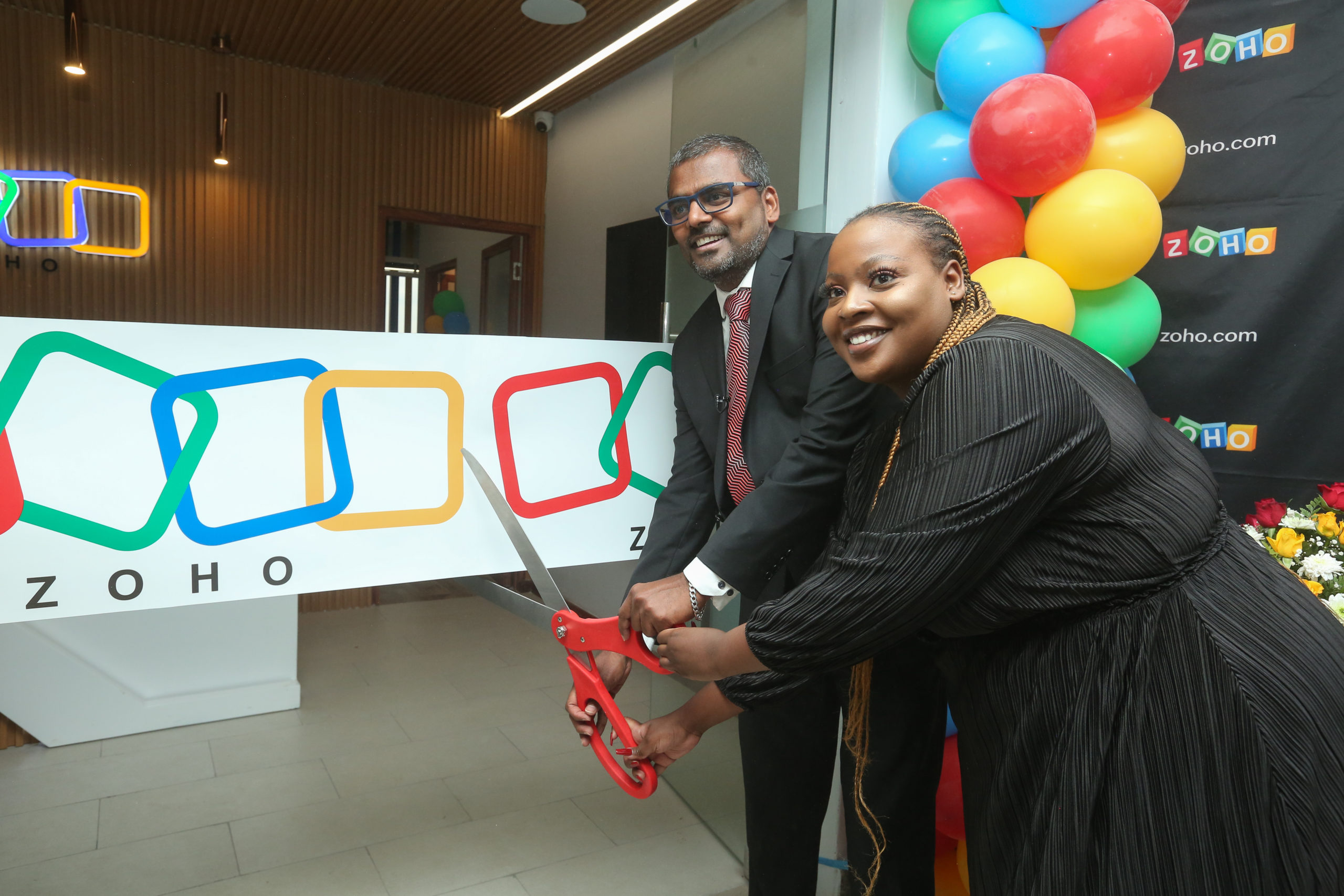Zoho had hinted at plans to set up an office in Kenya. This announcement has also been marked with a new partnership that will see SMEs gain access to Zoho’s product portfolio.
Zoho unveiled its Kenyan office in an event held today in Nairobi. The corporation, which offers a wide range of cloud-based business software solutions, had previously announced plans to set up a local office for Kenya operations.
The company offers a comprehensive suite of online productivity, collaboration, and business applications to help businesses of all sizes manage their operations more efficiently. It has been in service for over 26 years and provides its services in more than 150 countries. A Kenya office makes sense because Zoho has since reported notable growth up to six times over the last half a decade.
This is Zoho’s seventh office in the Middle East and Africa (MEA) region. It will mostly offer training services to Zoho customers. The idea is to push Zoho products and services to more people and businesses. However, unlike other local offices by global tech corporations, the Zoho facility will not be involved in any product development. As said, it is just a training centre offering local support to businesses that use Zoho products.
“Our humble roots in SMB have helped us systematically build powerful software with strong everyday usability,” said Veerakumar Natarajan, country head – Kenya, Zoho Corp. “With our strong DNA as a technology platform company, we have steadily improved our maturity and readiness for large organisations by investing in adjacent areas. Our Nairobi office will enhance our account management capabilities and enable us to cater to large organizations’ specific needs.”
“Staying true to our roots, we have also partnered with ISBI in order to help SMEs and start-ups in Kenya gain access to enterprise technology and gain a competitive edge and quickly adapt to the changing market landscape,” he added.
The company will be targeting sales deals with Saccos, and real estate agencies, although it has key working partnerships with other companies such as insurance firm ICEA Lion and e-commerce platform Hotpoint.
The facility’s opening coincided with Zoho’s partnership with the Institute for Small Business Initiatives, ISBI, part of Strathmore Business School.
ISBI collaborates with SMEs in Kenya to help them grow, streamline operations, and gain a competitive edge. Zoho’s part will be to digitize local SMEs by providing them with enterprise technology. Through this collaboration, all SMEs associated with ISBI will access Zoho One, a unified platform with 50+ business applications, including CRM, finance, HR, project management, collaboration, marketing, and sales. This allows SMEs to quickly shift their operations online, automate processes, and manage everything from a single console. SMEs in Nairobi will also receive technical support and product training to maximize the benefits of this collaboration.
“ISBI has been training over 1000 MSMEs in Kenya for the past 8 years. Our research-driven approach ensures successful capacity-building outcomes as we advocate for enterprise formalization and provide effective management tools. Our results demonstrate significant improvements, including increased revenue, company value growth, and job creation. While manual data recording poses a challenge, we recognize digitisation as the solution. Our partnership with Zoho supports SMEs through their diverse product portfolio. As the Director for Programs at ISBI, I am excited about our collaboration with Zoho and look forward to achieving further growth,” said Maryanne Akoth, Director for Programs, ISBI.
According to Natarajan, Kenya is one of the leading markets for Zoho services and products. It adds to Zoho’s footprint in Africa, which includes offices in Egypt, Nigeria, and South Africa. He added that the office currently has a headcount of 13 local employees. However, there are plans to boost that number in the coming days as the company seeks to expand its regional sales.
When companies such as Google and Microsoft set up their innovation hubs in Kenya, they aggressively hired technical people, some of whom were poached from competing companies. While the move was disputed and has since faltered following massive tech layoffs, it helped boost local talent in terms of skills and remuneration. However, Zoho, for now, will not be hiring. The country manager says it only employs new people on a need-to basis, and the fact that the office will not be developing new products implies it will not take the Microsoft and Google direction when they set up local shops.
Zoho adds to several tech companies that have since set up local shops or innovation centres. Yesterday, e-cab firm Bolt announced a similar development with a new office that will primarily address driver partner concerns. Bolt also announced a regional office based in Nairobi. It hosts high-level managers who oversee operations across Africa. Other companies with innovation centres include Visa and Google, and Microsoft (ADC).
A local presence allows companies to understand the unique needs and challenges of customers in that region, leading to personalised assistance and quicker response times. A local office like Zoho’s can facilitate market expansion and provide valuable market insights.






















